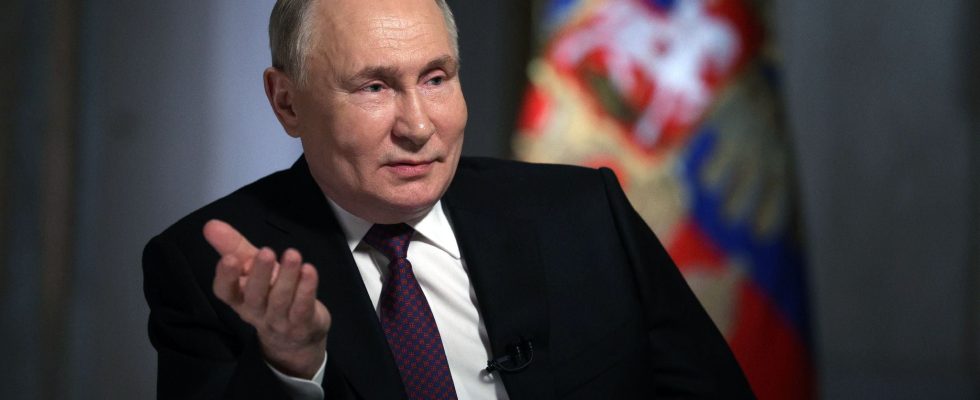As expected, the 80% mark was crossed. More than 87% votes (according to initial data), Vladimir Putin is crowned this Sunday evening the big winner of the 2024 presidential election – his highest score since coming to power in 2000. What does it matter if the plebiscite is, once again, marred by irregularities, or if it was disrupted by Ukrainian attacks in several Russian cities and by the arrest of dozens of voters voting together at noon this Sunday “against Putin”. Vladimir Putin will surely go on Monday evening to the concert given in honor of ten years of the annexation of Crimea to Russia, on Red Square, in order to celebrate his victory and calmly begin his next six years at the head of the Kremlin.
Peacefully? Nothing is less sure. We only have to see the exceptional system deployed around this election, a real “special electoral operation” organized by the Kremlin with the introduction of remote electronic voting, a vote organized over three days, and the disqualification of all candidates presenting the slightest liberal and peaceful aspirations in Ukraine. Just like the methods of coercion of voters – never seen before – symptomatic of a paranoia of power.
Harden your tone
This will undoubtedly lead them to toughen their tone during this sixth term. Russian diplomacy is sending no sign of desire for peace or negotiation in Ukraine, the head of the Kremlin preferring to raise the nuclear threat against the West with each public intervention. In his speech to the Federal Assembly at the end of February, to the concern of the population and the deterioration of their standard of living, Vladimir Putin preferred to respond: increase taxes and continue a war economy. The ministerial reshuffle which will follow the election, “if it takes place, will not change anything in the Kremlin’s policy”, says Andreï Kolesnikov. “It’s as if the Russian elite found themselves in a submarine: there is no possible way out for them if they do not support Putin,” explains this researcher at the Carnegie Russia-Eurasia Center, specialist of Russian politics.
A new wave of mobilization seems imminent, because it is necessary for a “major offensive by Russia this summer”, asanticipates the head of European diplomacy, Josep Borrell. Just like an even more ferocious repression of citizens. The death of Alexeï Navalny, and the absence of large-scale movement which followed, can only reassure the Kremlin in its methods. Now free of electoral deadlines and a popular opposition leader, the dictator is free for six more years. In Russia, the spiral of worse has begun.
